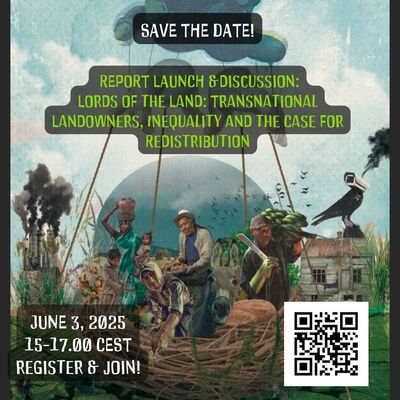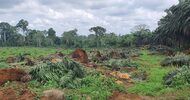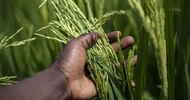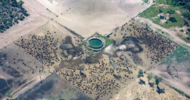Malaya Business Insight | 13 June 2010
By Paul M. Icamina
LOS BANOS – Transnational "land grabbing" has become a global concern, prompting organizers of the world’s largest conference on the rice industry this year to place it on the agenda.
Among the topics during the 3rd International Rice Congress, slated in Hanoi from November 8 to12, are the latest in rice research, future technologies, trade issues and policies that define the cereal’s role in supporting poor rice-dependent communities.
The conference, the first time that the "land grabbing" issue will be addressed in a high-level meeting attended by 17 agricultural ministers, will be convened by the International Rice Research Institute (IRRI).
Recent interest in "land grabs," or the trans-border acquisition of land to produce rice, is sparked by a looming threat of inadequate rice supplies as many countries do not have the capacity to grow enough rice on their own land to meet existing or anticipated demand, IRRI says.
"To put it simply, there is not enough rice to feed the world," says IRRI director general Robert Zeigler.
"To meet the need and keep rice prices around $300 a ton – which allows poor rice farmers to make some profit yet keeps rice affordable for poor rice consumers – we need to produce an additional 8 to10 million tons of rice more than in the previous year for the next 20 years."
While many developing countries would benefit from financial investment in their rice industry, "the most important thing about rice production, whether it is supported by international investors or not, is that it delivers benefits to poor rice farmers and consumers to help lift them out of poverty and that the health of the environment is maintained or improved," he says.
"Land grabbing," as defined by critics, is the acquisition (through lease, concession, outright purchase) by countries or corporations of large farmland over 10,000 hectares in another country and on a long-term basis, often from 30 to 99 years.
In Madagascar, negotiations with a South Korean corporation to lease 1.3 million has. for maize and oil palm reportedly played a role in the political conflicts that led to the overthrow of the government in 2009.
According to GRAIN, an international non-profit organization that supports small farmers, more than 50 countries are targeted by about 1,000 investment groups and a dozen or so governments.
It cites World Bank figures that says 50 million has. – nearly half the cropland of China – is signed away or under negotiation in Africa, Latin America and Asia since 2006. The UN Food and Agriculture Organization says such acquisitions in Africa alone involves 20 million has.
GRAIN estimates that $100 billion has already been mobilized to pay for these deals. The World Bank puts the figure at half that.
To ensure food security, the Gulf States, South Korea, China, Japan and Libya are eyeing lands in Ethiopia, Sudan, Mali, Mozambique, Pakistan and the Philippines.
About nine of these deals are in the Philippines which has reportedly opened talks with government officials from the Gulf States, China (which started leasing land in Cuba and Mexico 10 years ago) and South Korea over the lease of land.
The issue is particularly sensitive in countries there is a high degree of landlessness, like the Philippines where seven out of every 10 rural people do not have access to land.
Protests forced the Department of Agrarian Reform to suspend a memorandum of understanding it signed in 2007with China on the development of 1.24 million has. to grow hybrid corn, rice and sorghum.
The land contract with China was blocked because of serious concerns about its terms and legal validity, as well as its impact on local food security.
Qatar reportedly leased 100,000 has. in the Philippines in 2008. Last year, Bahrain also signed a deal involving 10,000 has. for agrofishery.
Countries with large populations and food security concerns such as China, South Korea and India want to produce food overseas.
Many governments – directly or through state-owned entities and public-private partnerships – are attracted to such land acquisitions because of new investments and technologies, employment, stable global prices and more food production for local use as well as exports.
Food-importing countries with land and water constraints but rich in capital are attracted to lower production costs, more abundant land and water, geographic proximity and climatic conditions for preferred staple crops.













